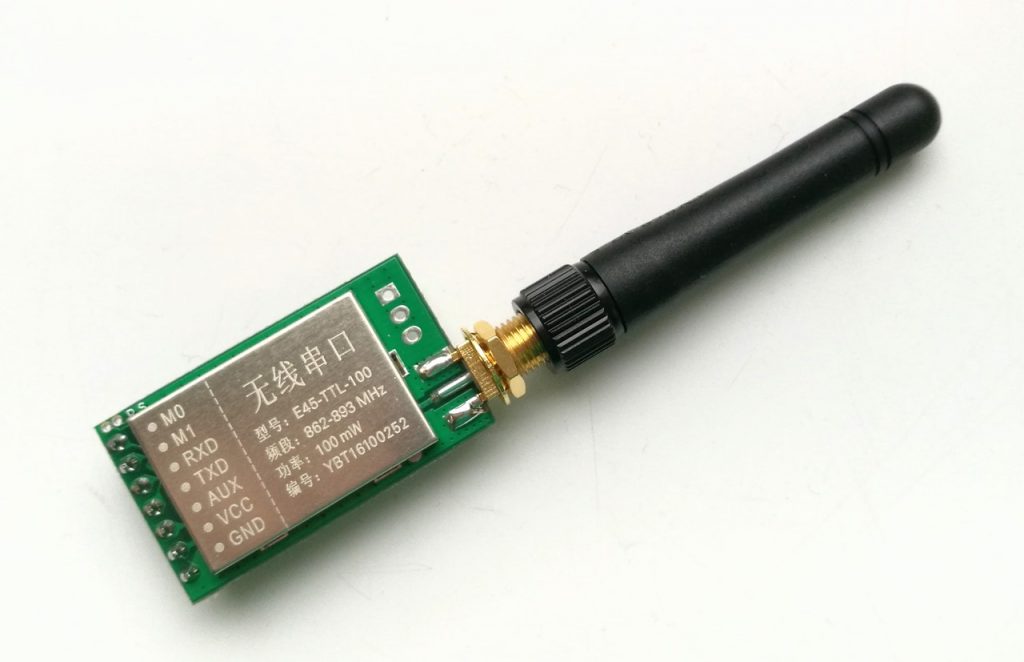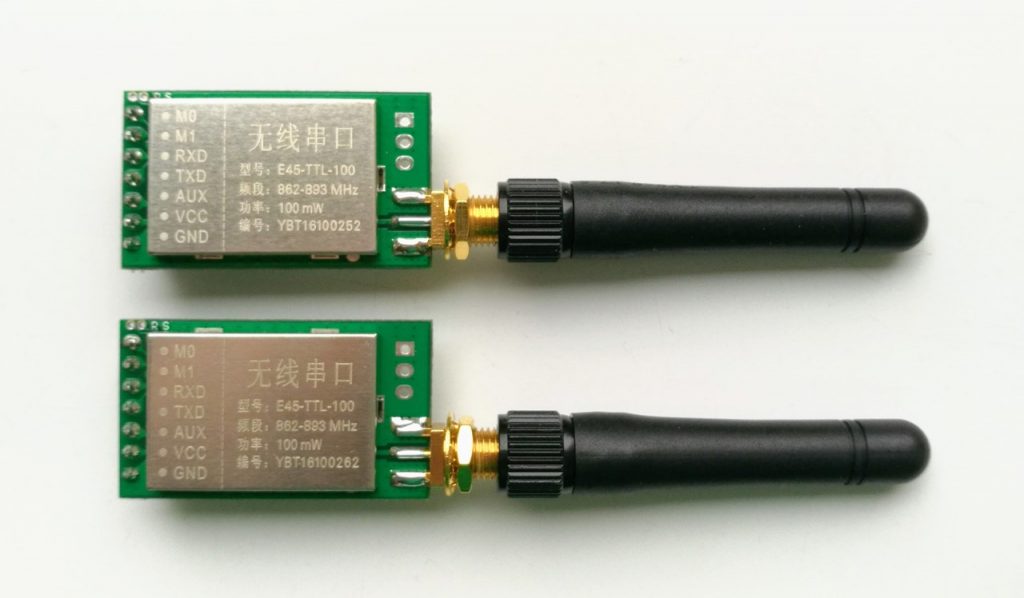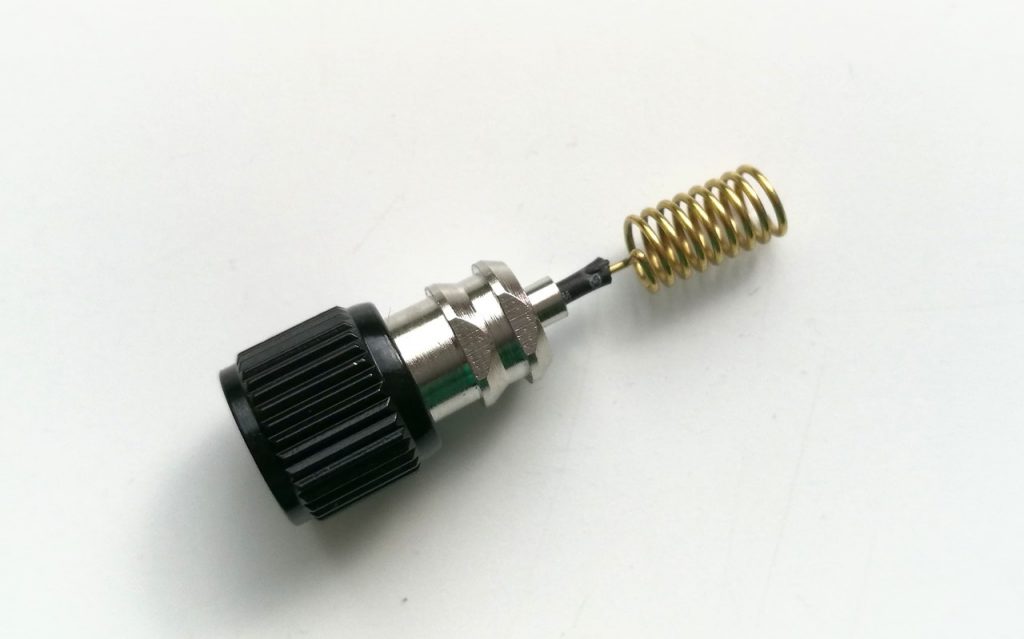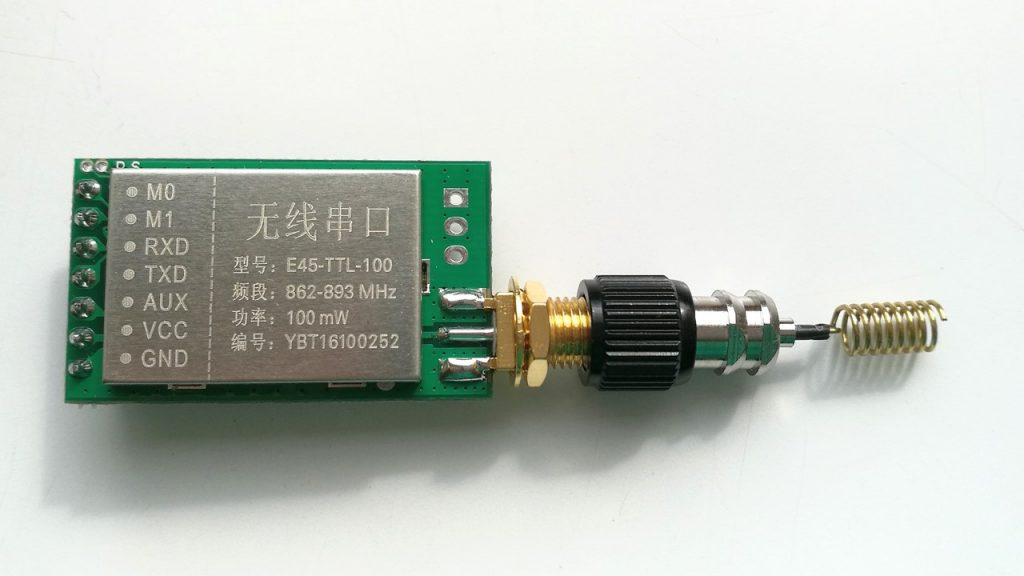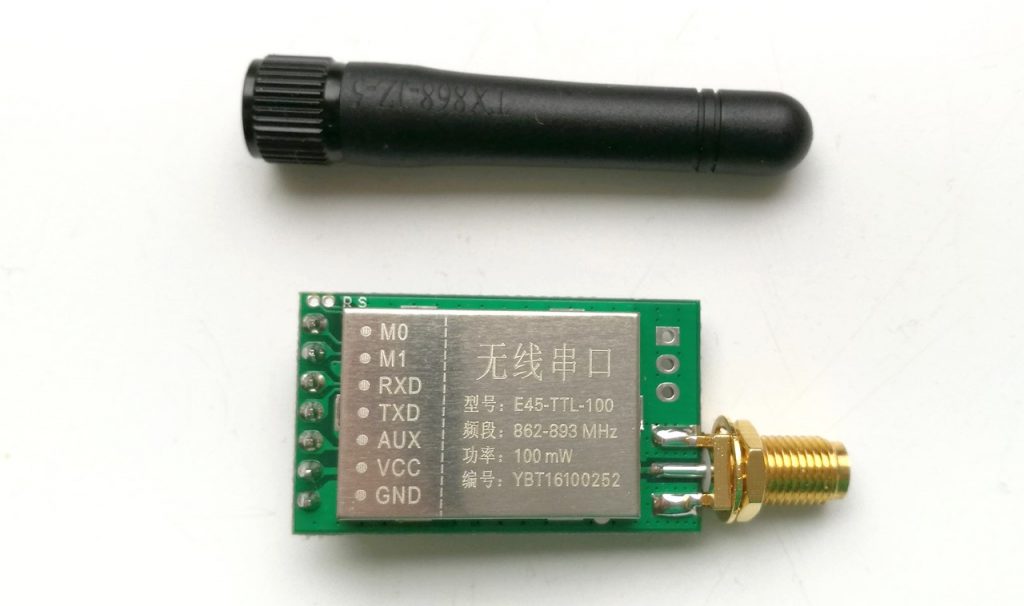Hands on: E45-TTL-100 868MHz LoRa wireless modules
My quest for ultimate (?) DIY telemetry system for UAVs continues. Last year I was playing with HC-12 433MHz wireless modules with pretty decent results. After all, more than 1km of range for a few bucks is more than acceptable. Still, HC-12 has at least few problems:
- 433MHz band is very often polluted and used by other Rc systems/subsystems (LRS)
- 433MHz requires pretty big antennas
- No frequency hopping
- No easy way to build network of more than two HC-12
- 1-1.5km of range is nice, but one might want more
To overcome at least few of those problems, I've decided to look for different wireless modules, not specifically in 433MHz band. And, on eBay I've found those: Ebyte E45-TTL-100 868MHz LoRa wireless modules with transparent serial transmission mode.
Why 868MHz and why LoRa and why E45-TTL-100?
- 868MHz band is usually less polluted than 433MHz band
- Higher frequency = shorter wavelength = shorter antenna with still good wave permeability
- LoRa, proprietary chirp spread spectrum radio modulation allows for longer range using low power and higher speed comparing to traditional, classical, modulations (FSK). For more info, read Wikipedia
- Thanks to LoRa, frequency hopping is not that important: chirp is transmitted using spread spectrum/wide frequency range
- E45-TTL-100 allows for both transparent and addressed transmission modes
- It is pretty cheap...
E45-TTL-100 itself
Hardware
I must say, I was surprised with quality of Ebyte E45-TTL-100 modules. Nice PCB, nice soldering. Each module has engraved signature and unique serial number. This is not something you see very often in this price range. Usually it is just a sticker with symbol and forget about serial number. Indeed, very nice touch.
Each module comes with small, loaded, SMA 868MHz antenna and USB to serial converter.
Radio transmission is performed by SEMTECH SX1276 and manufacturer says it should be able to do its job up to 3km of range at 100mW. Maybe, maybe... who knows... I will try to test that for sure in upcoming weeks.
Connectors
- GND - ground, obviously
- VCC - power supply, from 2,1V to 5,5V
- AUX - output indicating current status
- TDX - TX line for serial port
- RXD - RX line for serial port
- M1 - operating mode selector
- M0 - operating mode selector
And, of course, SMA connector for antenna.
Software
Software? Yes, software. Ebyte was nice enough to provide software that allows to configure modules. Especially: operating channel/frequency, module address and operation mode. Isn't that nice? Configuration software can be dowloaded from here.
Important: use supplied USB To Serial connector and remove 2 jumpers to enable configuration mode. Without it, configuration will not be possible
Modes
There are two operation mode groups for E45-TTL-100 modules: hardware mode and transmit mode.
Hardware modes
| Mode | M0 | M1 | Description |
|---|---|---|---|
| Mode 0 | LOW | LOW | Normal operation mode |
| Mode 1 | LOW | HIGH | Wake up mode, best used as transmitter with receiver in Mode 2 |
| Mode 2 | HIGH | LOW | Power saving mode. Module will wake only after transmitter in Mode 1 will send a radio packet |
| Mode 3 | HIGH | HIGH | Sleep / Settings mode |
Transmit modes
Transmit modes can be set up using configuration software.
- Transparent transmission mode - whatever comes to serial port is transmitted over the radio. Whatever comes from the radio is transmitted to serial port. Think about is as wireless serial cable. User can set operating channel and device address for each module. Communication will be performed between devices on the same channel and address with small remark address
0xFFFFis a broadcast address. That means, if device is set to0xFFFF, it will listen to all other devices on that channel - Fixed transmission mode - this mode allows for much more flexibility that transparent transmission mode. Each message has to be prefixed with 3 byte prefix (hex)
AA BB CCwhereAA BBis recipient address andCCis recipient channel. Once again address0xFFFFis a broadcast address and all devices in a channel will receive it.
Summary
This device is very promising. If it really will be able to reach 3km range at 9600bps it might be an "ultimate" telemetry hardware. But I have a feeling, that with proper antennas and at open space, it should be able to do much more distance...
And ah, by the way, there is also E45-TTL-1W with 1W output power! Powah....
Device manual can be downloaded from here

I'm Paweł Spychalski and I do things. Mainly software development, FPV drones and amateur cinematography. Here are my YouTube channels:

